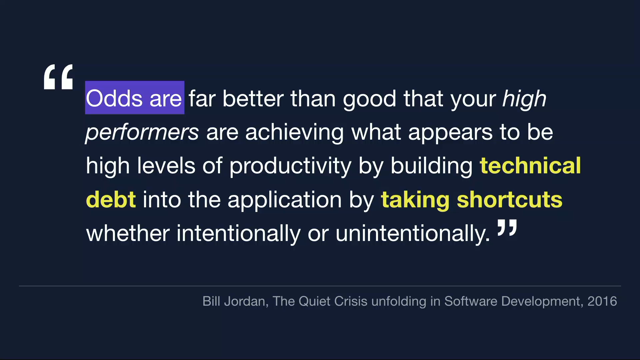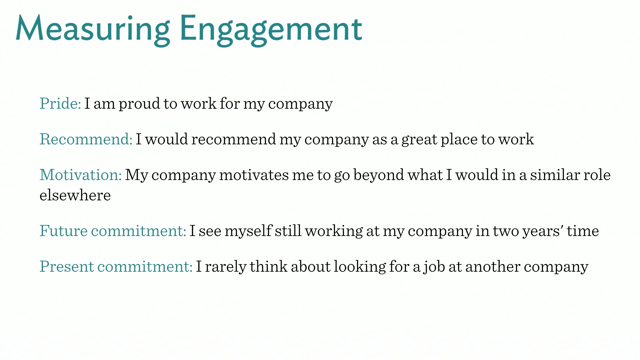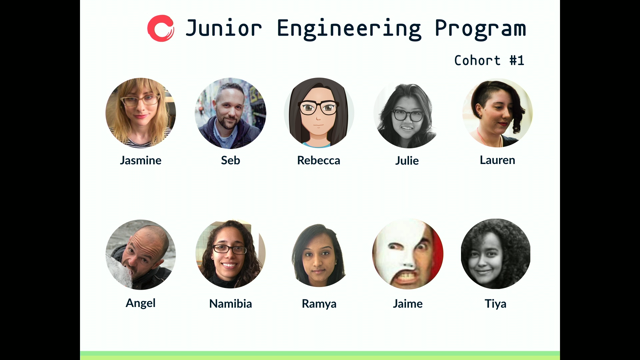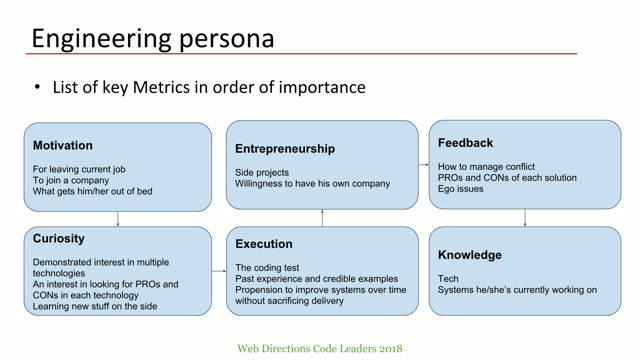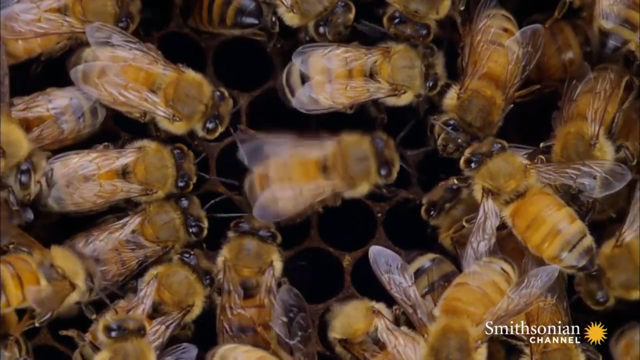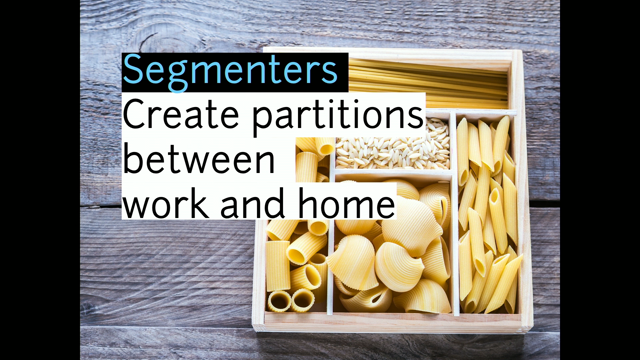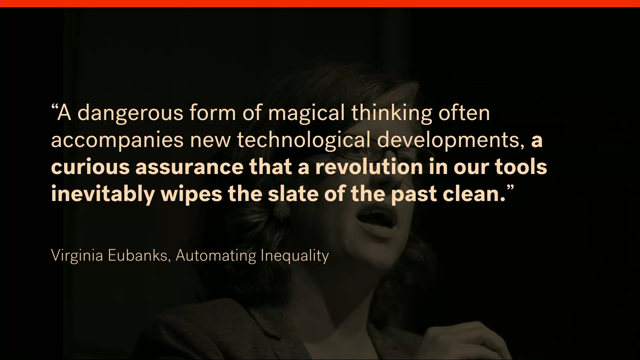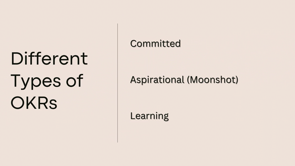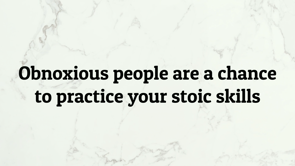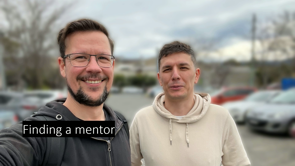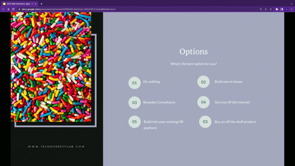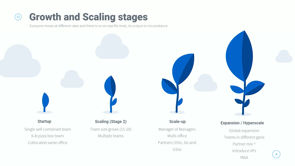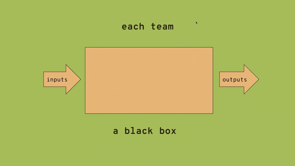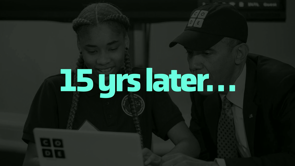
A reflection
Paul opens with a guided reflection on your own potential.
A story of potential
Paul shares a story from his family's life to illustrate the ideas of his talk.
How potential gets fulfilled
It's crucial to recognize that people inherently have potential. But there are also lots of barriers that hold that down. Our job is to create the conditions that the amazing things that are already there can seed, grow, flourish and shine out.
The 3 conditions to help potential thrive
There are three conditions to help potential thrive. They are belief, opportunity and safety. And there's a single thing at the heart of this for us as leaders: unconditional love.
How love establishes the 3 conditions
Paul describes how love builds belief, creates opportunity, and knits safety.
The Culture Amp Engineering Internship Program
Paul tells a story about how the ideas in this talk manifested in the Culture Amp Engineering Internship Program.
Three actions you can take
1 - Ground your being in love. 2 - Ask questions, listen, see, encourage, empower. 3 - Structure things to maximize opportunity with safety.
Give the gift of love
Picture someone in your team who you really want to help thrive and grow. Imagine that it's ten years from now and you meet the person. They describe the positive impact on their journey you had after returning from this conference. Let's go out and give that gift of love.
Can I ask you to please close your eyes just for a moment?
I want you to reflect on the greatest accomplishment that you've had so far in your career, or maybe even in your life.
Let your imagination take you back to that point, the highest point of that success.
What did it feel like when that thing you dreamed of was fulfilled?
What were you most proud of in that whole thing?
And what were some of the obstacles and some of the odds you needed to overcome in order to get there?
Now, I want you to go back in time, back to a point when it wasn't certain that you'd actually be able to potentially get to that thing that you achieved.
When you maybe weren't sure if you had what it takes, and you maybe weren't sure what the journey was gonna look like to actually get you there.
How did it feel back at that time?
And I want you to imagine that your future self was able to make you a visit back at that time, they stepped through some kind of portal and just with this beaming smile told you about all the things you were going to achieve.
Can you see the seeds of the talents and the abilities in you that grew over time and became the things that led to that achievement?
What were those things?
Can you see these special things inside of you that were there all along and led to that?
Can you see your own potential?
You can open your eyes.
My eldest daughter, Emma has always been quite gifted academically from a young age, but in grade three she showed interest in something that was in quite a different realm to those natural academic strengths.
She said, 'dad, I wanna go in the school production'.
And so I said to her, 'sounds great Emma, maybe you should audition for the ensemble and see what this is see what you learn from it.
See if it's something you wanna do.' So she did and she went in and she was in the ensemble for this show I think it was called 'Honk', about the, ugly duckling.
And she had a great time and it built this love of theater and performance that stayed with her for the years ahead.
You'd always then find every, so often Emma would be auditioning for something, some kind of show, and she'd be auditioning for some kind of role in these shows.
But there's one thing that was always in common when she got the results, it was like, Emma, you've been selected for the ensemble.
After three years of this she came to me one day and she's after getting the news again of one of the ensemble, and she said, 'dad I really love these shows and I really love being in the ensemble.
It's really great to do all this stuff with people, but I just have this yearning.
I just want to go on stage and have my own line to say, I just wanna say something myself in a role'.
She's 'is it bad to want that?' And she's 'but I don't know if it's ever gonna happen.
Because I just keep getting this thing' and she goes, 'even back when we went to that first time and I was going into Honk, everyone else was auditioning for a, lead role.
And I wasn't even in the race.
I was just in for the ensemble.' 'And it just feels like I'm never gonna have the chance' My heart sank.
It was like I realized back in that first year, encouraging the ensemble, I really wasn't believing enough in the potential of Emma to perform.
And I did not wanna make that mistake again.
So I turned to Emma and I said, 'Emma, I am.
I see you come alive when you do this performance.
I see how much you love it and you just light up when you do anything to do with this, I'm gonna support you a hundred percent in continuing on this journey to explore and get you that dream of being able to say a line on stage'.
And so we kind of went forward.
Not long after that, the the school production was announced it was gonna be Annie and their school goes from prep all the way through to year 12.
And so there's lots of great performers in the school and lots of older kids.
And Emma was only in grade six, but she comes to me and she's 'dad, the school production's gonna be Annie.
And I'm thinking of going for the role of Annie, do you think I should?
What do you, think?' I said, I was like, 'yes, absolutely Emma'.
'You should go for Annie'.
And I said, 'I'm gonna do everything I can possibly do to help you with this'.
So for the next few weeks, everything in our house was Annie.
We're watching the movie of Annie.
There's, you go past Emma's bedroom and all these Annie songs are coming out.
I, could probably perform Annie.
I've heard the songs so many times.
We went out for walks together and we were trying to do acting things.
I have no idea what I'm doing with acting, but I was like let's, just role play some stuff and see what we can do leading up to this.
And so we were preparing everything we could.
And then it was announced the auditions were coming up and they sent us a date- right smack bang in the middle of a cruise ship holiday we'd booked six months before.
We're gonna be in the middle of the Pacific Ocean while the audition's happening.
Emma was a bit dejected when she heard that news and I said, 'wow that is that is rough'.
I'm like, 'but let's see if there's a way, Emma'.
So I'm like, 'I'm gonna, I'm gonna contact the school and just understand if there's any other option'.
So I contacted the organizers of the production and I explained our predicament, and they said if you wanna do a video audition while you're away.
We would accept that as an audition'.
And I'm like, 'yes, we are back'.
I'm like, I came home, we're back in the running for this.
So we're all back on the whole Annie sort of thing.
And then we get to this cruise.
Flew into Sydney near here and then set out.
And the first few days of that was so joyful.
We're thinking about this, the, this Annie audition and, on the cruise ship you've got all the performers.
So Emma's talking to them and engaging with it, and it was, the joy was palpable and we kept delaying the actual videoing until the last possible moment we're on the day.
It's like it's gotta be recorded today.
So we head to the room and I'm on camera and Emma sings tomorrow and she says a few lines recites a few lines, and we get it all on video and it's great.
This thing's gonna go in, it's just over to me to get this file uploaded to the...
I'm like, I'm in the middle of the, I'm in the middle of the Pacific Ocean.
I've got no bars on my phone here, so I'm like get the satellite internet.
I dfon't know if anyone's had experience with cruise ship satellite internet, but it is not the most reliable transfer approach.
And after trying many different file transfer technologies, I eventually got one that, kept restarting, and at about 1:00 AM on the night of that thing, the server, the file was on the server and we were in the mix.
And there was a waiting game.
So we're waiting for the next few days.
Were we gonna get the results before we finish the end of this this cruise ship?
And it comes down to the last day.
And it's, actually my birthday of all days.
The last day of this cruise ship that morning, an email comes in from the thing with the results.
And I've, got my phone, I'm just looking at it.
And I'm like, Frodo in Lord of the Rings.
I'm like he knows what he needs to do, but he doesn't have the heart to do it.
It's like I, I couldn't bear to click the email to see what was inside.
'Cause if this was the ensemble again, then it was just gonna be really, hard for Emma at that point.
But I worked up the courage and I clicked the email and I scrolled down and I actually I struggled.
I struggled to speak.
Because she got the role of Annie.
She absolutely got the role of Annie from ensemble all the time.
And she's I wanna say a line.
And now she's gonna be like the lead on this whole thing.
So I ran to my wife and I'm like, she's got the role of Annie.
And we, go down into the room and then broke the news to the girls.
And Kathy happened to actually film this.
I wanna share a little clip of us filming this news with Emma [Paul's voice recorded on the video] Dear, Emma.
Congratulations.
We would like to offer you the role of...
[Emma gasps in excitement] The full video goes for three minutes, but I thought I'd just give you the I'll give you the clip.
Six months later, when she took to the stage, she lit up that stage.
She filled that whole theater with its palpable joy that I hardly have words to describe.
She had the potential inside of her all along to do that amazing thing and, when you look at this picture where we had this eye contact of the mutual recognition that dream that was dreamed had now been fulfilled, that's a glimpse into the power of potential.
So we're gonna do three things together in this session.
The first is unpack what's behind that, what goes into helping the potential of someone be fulfilled.
What's behind Emma's story?
What's behind your own reflection at the start of this thing?
What's behind the story of all the people in your team?
Then I'm gonna talk a little bit about our Culture Amp Engineering Internship program and how we designed that from the stuff I'll talk about in one and then one of the stories that came outta that program.
And then finally, I'll give you three tangible things you can take away to help your people fulfill their potential when you go back to work.
So what's behind this?
Firstly, it's crucial to recognize that people inherently have potential..
Like you, me, every single person in your team have amazing, like golden special, unbelievable things inside of them.
Our, our talents, our ambitions, our aspirations, our abilities, our potential to learn.
These things are so great that if they were to manifest in the fullness of what they can be, and that would really, come out in that fullness, the only possible reaction in witnessing that would be one of awe.
But while that's the case, there are also lots of barriers that we have that hold those things down, that dampen them, that prevent them from growing, that keep them in.
And there, there are many things that work to this.
Our own fears are a huge example of, those barriers.
But as leaders of people, our job isn't to try and inject in from the outside some missing thing, some gap, some part that someone doesn't have.
Our job, rather, is to help create the conditions that those amazing things that are already there, they can seed and grow and flourish and shine out.
That's the model to think about how to help people fulfill their potential.
So what are those conditions then?
What are the conditions that help that potential thrive?
I believe in my experience, there are three-belief, opportunity, and safety.
And we'll drill into those in a little bit more detail.
So belief, there has to be some dream, some thing that someone wants to achieve, wants to fulfill something that's meaningful to that person, and there has to be a belief that it's possible.
There has to be a belief that it can be done, and the clearer and the more powerful that is.
It works like this magnet to pull someone through towards it, to pull through the inevitable obstacles that are gonna be there along the way.
So that's the belief part.
The second one is opportunity.
Many people have spoken with today about opportunity.
There has to be real, actual, tangible opportunity, an open door.
There need to be specific ways where people can progress in the things they need to learn and develop and grow and experience in order to get to the thing that they're, really striving for.
And then thirdly, there has to be safety.
When you're trying to fulfill potential and like, really fulfill potential to that full degree, that is possible there is risk in that, you're attempting things that are not easy.
There's a stepping into the unknown and there has to be a safety so that like there's acknowledgement that you may not even after all of the work and all the things you do, you may not always get to the thing that you're trying to get to, and it has to be this safety that even if that happens, even if I've, if I fail on this journey in whatever form, I think of that on, I'm still valued.
I still belong.
I'm not written off.
There has to be that safety.
So if they're the three conditions that lead to this, then what can we do as leaders to help?
Nurture those conditions.
And it's my belief that there is a single thing at the heart of this for us as leaders.
And you probably guess what that single thing is from the introduction to stuff.
That single thing is love.
Now, this is a word we don't use a lot in the in the world that we're in, like in our engineering tech or our business world.
We don't use this word a lot.
I was so thrilled to hear Gretchen talk about loving people multiple times this morning.
It's also a word that's very overloaded with many different meanings.
So the ancient Greeks had seven different words for love, and they all had different meanings.
What I'm talking about when I say love is what the ancient Greeks would've called 'agape', which means 'unconditional love'.
It's basically the best way I could frame this is to say that, for a person unconditionally, regardless of any condition, no matter who someone is, no matter what their background, no matter what their gender, no matter how much experience they've had, no matter how old they are, no matter how well they're even performing, no matter whether they think about things in the same way that I think about things, regardless of any of that, I choose to hold their worth to the fullest degree, and that yellow bar doesn't stop at the top of this building.
That just keeps going.
It's still rendering up, and there's no limit to that, that I choose to hold their worth to that no matter what and go 'in all situations at all times and all places, I'm gonna strive to align everything I say and do and decide with that recognition'.
That is what I mean by the unconditional love of people.
And this has to start in our beliefs, has to start in what do we actually believe about the other people that we work with?
And then it flows into how we behave and then all of that seasons, the things we do with this quality that has a genuine, uplifting impact.
It's also important to point out, when I talk about loving people, I'm not talking about just being nice and just being kind.
There are times like most of the time when you're like in an unconditionally loving way with someone, there's a lot of kind things happening from that.
And but there are times when, like if someone's behavior is having a negative impact on themselves or the team around them, if someone is not achieving the things that they really need to be achieving for their job, all sorts of different scenarios.
We have to be able to have honest conversations about those things and very direct conversations about those things.
And in that moment for the person, that kind of conversation might feel like, wow, that was a really hard thing to hear, but that's actually the loving thing to do, to actually just not address it and just be nice, you're not actually valuing the person, and that's why this is grounded again in what you believe because you can only have that hard conversation if it's grounded in the safety of, 'I still fully value you, we're talking about this and I'm never gonna diminish your worth in having this conversation'.
So it's gotta be real.
It's gotta be real, and people sense when it's real and people come alive when it's real . And it's also, like I said, something that is moment by moment is, this is an embodied thing that I'm talking about.
It's not just every so often or in certain decisions or in the big how we think of the big decisions.
It's actually in all the small moments-drip by drip-the way we are when we are with someone in a one-on-one, the way we respond, the way we think about things.
So why do I say that 'love is at the heart of fulfilling these three things?' Let's go through those three from that lens.
So when you approach someone with this foundation of love, you are present because you value that person so much it's like 'I want to give you my full attention 'cause I value you so much and I'm so interested in you.
I want to know about what your aspirations are.
I'm gonna ask you things because I really wanna find that out and I wanna actually help magnify that.
I wanna dream together to get that picture of what it is that you really, want to do.
And I wanna take the time to do that, and I'm gonna really listen to you.
I'm gonna really see you.
I'm gonna recognize those things in you that are great and I'm gonna help encourage them forward.' So this kind of unconditional love, like it builds belief.
And a lot of us don't believe in ourselves.
A lot of us have times I struggle this a lot with a kind of a sense of an imposter syndrome kind of thing.
Like we don't believe in our ability to go forward and do things.
But when you've got someone there with you that believes in you, something about that transfers, something about it helps you build that belief that's needed in those conditions to go forward.
Second one is opportunity.
When we approach things in this loving way, we invest real effort because we, really value someone and we're trying to help them find the opportunity for them, and that can take all sorts of different forms.
That can take trusting people to actually own and go out with things and experience them for themselves and learn from, those experiences, even if they have to learn through that, like failing in a safe way.
We give that feedback on areas where growth is gonna be continued to be needed to get to the, thing that you're trying to get to constructively challenging thinking it was like earlier Patrick, what you shared about the the, manager was like, Nikolai doing this great, constructive challenging of thinking about how to grow, is a great example of that.
And we advocate and as Gretchen was sharing like that intentionality about equitable design and putting in the, all of the structures that helped make sure that people are not getting overlooked and discriminated against and having opportunities snatched away, like all of these things are so crucial.
But this flows from, if we start from this loving orientation, then we are drawn to put these things in place.
And then finally, with safety, that valuing of someone inherently is at the core of that safety, 'cause it means that no matter what happens, your value is not gonna be diminished.
It's, constantly gonna be upheld.
And when we approach things from love, we never judge a person like what Dave was saying earlier, like we, we don't judge.
We work through hard things together, but we never diminish worth, and we can empathize, we show vulnerability and it helps other people show vulnerability.
And when we do make mistakes and mess up with things, there's this sense of forgiveness and restoring things and giving second chances, and working our way through things and learning that comes from this orientation.
So that's the what's behind fulfilling potential.
I'm now gonna briefly share the Culture Amp internship program.
So we wanted to do an internship program to give opportunity to some people who were still studying their uni degree to come in and get some real experience in a, tech company like ours.
And the desire here was to make this as rich of a growth experience as possible for those candidates, and so we, really said, real experience and real exposure in real teams was gonna be the way that we maximized that opportunity for people to really to, have a, significant spurt of growth in the period that were with us over this three months period.
But we needed to do it in a really, safe way.
So a lot of our focus was on what are the right teams that are ready to take an intern?
And that wasn't the teams that were just doing easy work in some ways or things that were gonna be like more straightforward.
Some of the teams we chose, were actually doing some of the most complicated and mission critical things that we have in the Culture Amp platform.
The thing was, were the team at a place where their team dynamic and their like willingness and their openness and their ability to support an intern was that strong?
And were there was there an empathetic like mentor in the team who was gonna be able to help that person flourish in the kind of ways I'm talking about?
So we found some teams that met these conditions and we placed some interns in them for three months and encouraged those teams to find ways to give them the best experience they could give them.
And one of the ones that just really stood out was our core services team.
So they own a whole bunch of the core critical services that run the Culture Amp platform, like authentication and authorization feature flagging of what things are turned on and off for what users and customers.
Ellen was the intern that came into that team, and Hugh was the tech lead and Ellen's mentor.
Hugh embodied everything I've been talking about today in a wonderful way.
With Ellen, he was searching for ways to give her the scope to be able to do really increasing levels of things, depending on her interest and how much affinity she showed to those things.
But set up in a way that there was no pressure to go to a certain level.
Like she could go one step with this stuff and that was totally fine.
Or she could go steps two, three, and four and really expand out.
And then Hugh was encouraging and, coaching her and working with her to see how far she would go with the things she was doing.
What they ended up settling on was for this feature flag service that was getting reworked to a significant second version.
The team needed a way to drive this feature flag service from all of the different technology stacks that were using Culture Amp.
And they were gonna need to find a way to solve this problem.
And then Hugh was like 'Ellen, this is something you could probably contribute to, why don't we work together and think about what that could look like for you?' And Ellen just totally took to this and she ended up building in the three months that she was with us, she built this end-to-end reference application, this reference architecture for using feature flags with Lambdas in TypeScript and Go and Ruby.
She had never written a line of TypeScript or Go or Ruby before she started like this internship.
She deployed these things into AWS.
She hooked it into all our build pipelines.
She did this, whole end-to-end thing and built a nextJS front end.
And she came out at the end of her saying, 'that was the most amazing experience.
I got to learn so much in, in such a, like a short period of time'.
But not only that, Ellen became this crucial member of that team because as people were doing work and they're starting to get the, main service ready, they were like, 'Hey Ellen how are you thinking about driving this?' And she'd get into that conversation.
And then week by week, she was in more and more conversations.
And then she was almost like the central hub of how that team was operating.
And then she would be going out to other teams inside of Culture Amp and saying if you're gonna start using feature flags, here's this application I've built and this is like how you can think about how to use it.' And she started working with our support team to go, 'you're gonna need to support our customers and turning on and off feature flags.
Here's how my application works with it.
And you can learn from that'.
And not only did she have this great learning experience, she performed at a level where we were just like that is like an amazing quarter of performance for someone in an engineering team in our internship.
She then stayed on with us.
So after the internship, she continued to work part-time while she's doing her study.
And in less than nine months has progressed from being a junior engineer to a mid-level engineer and is owning like core parts of the actual core services of our Culture Amp platform.
It's an amazing example, again, of the power of potential and setting a condition up where Ellen could flourish as much as she was capable of, which turns out to be like a really, big amount and in a very, safe way.
So then finishing.
Three actions that you can take when you go back into your teams to help people realize their potential.
The first, and this is really summarizing what we've been going through, the first ground you are being in, that kind of unconditional love that I'm talking about.
Doesn't actually take extra time or extra, it's an extra thing to do.
It's more like when you show up with the people you're already showing up with, how can you be in those situations with those people?
And then think about how much are you asking questions and really listening and really seeing and encouraging the things in empowering people.
Because that whole process of letting someone flourish themselves rather than you telling them what to do is, super powerful for someone's growth.
And then the third is intentionally structure things to maximize opportunity.
But with the appropriate safety so that people really can thrive and and not get into these situations where it's unsafe to do so.
before I finish, one final thought exercise I want to ask you to think about.
Picture someone in your team who you really want to help thrive and grow.
And I want you to imagine that it's 10 years from now.
And you've lost contact with this person over the years and you haven't seen them for maybe five or six or seven years, but you're walking down the street.
You are at one of these conferences.
Maybe you're at the, at Web Directions in 10 years time, and you come in and you meet this person in the corridor and they come up to you and they say, 'oh, it's been so long.
I just wanna tell you, I don't know if you will even realize this, but about 10 years ago, we had this amazing conversation I think you'd just come back from a conference and we're in this meeting and we're talking about like stuff, and you were really asking me like, what is it that I want to do?
And there was something in this conversation where something unlocked, like I, realized for the first time my interest in this area overlapped with my, experience in that and this other thing, and looking back that set me on this journey.
To where I am now and I dunno if but that was like a crucial moment and I just wanna say thank you.' That kind of thing will happen.
You never see it, but it'll happen all the time when you approach things in this loving way.
And my encouragement for us all is we can give that gift.
Every single day with every single person in our team.
Let's go out and give that gift.
Thank you for listening.
